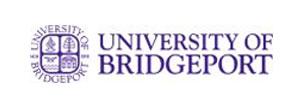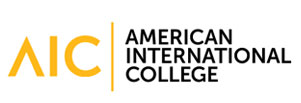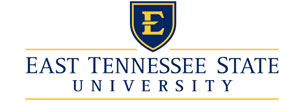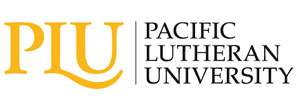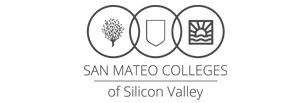
Study in Europe
Education in Europe
Europe is a continent located entirely in the Northern Hemisphere and mostly in the Eastern Hemisphere. It is bordered by the Arctic Ocean to the north, the Atlantic Ocean to the west, and the Mediterranean Sea to the south. It comprises the westernmost part of Eurasia.
Since around 1850, Europe is most commonly considered as separated from Asia by the watershed divides of the Ural and Caucasus Mountains, the Ural River, the Caspian and Black Seas, and the waterways of the Turkish Straits. Though the term “continent” implies physical geography defines it, the land border is somewhat arbitrary and has moved since its first conception in classical antiquity. The division of Eurasia into two continents reflects East-West cultural, linguistic, and ethnic differences, some of which vary on a spectrum rather than with a sharp dividing line. The border does not follow political boundaries, with Turkey and Russia being transcontinental countries.
Europe covers about 10,180,000 square kilometers (3,930,000 sq mi), or 2% of the Earth’s surface (6.8% of land area). Politically, Europe is divided into about fifty sovereign states of which the Russian Federation is the largest and most populous, spanning 39% of the continent and comprising 15% of its population. Europe had a total population of about 741 million (about 11% of the world population) as of 2016. The European climate is largely affected by warm Atlantic currents that temper winters and summers on much of the continent, even at latitudes along which the climate in Asia and North America is severe. Further, from the sea, seasonal differences are more noticeable than close to the coast.
Europe, in particular, ancient Greece, was the birthplace of Western civilization. The fall of the Western Roman Empire, during the migration period, marked the end of ancient history and the beginning of an era known as the Middle Ages. Renaissance Humanism, exploration, art, and science led to the modern era. From the Age of Discovery onwards, Europe played a predominant role in global affairs. Between the 16th and 20th centuries, European powers controlled at various times the Americas, most of Africa, Oceania, and the majority of Asia.
Quick Facts:
Area: 10,180,000 km2 (3,930,000 Sq Mi)
Population: 741,447,158 (2016; 3rd)
Population Density: 72.9/km2 (188/Sq Mi)
GDP (nominal): $19.0 Trillion (2016)
GDP (PPP): $27.2 trillion (2016)
GDP Per Capita: $21,767 (2016)
Demonym: European
Countries: 50 Sovereign States(6 with limited recognition)
Dependencies: 6 dependencies
Largest cities: Istanbul, Moscow, Paris, London, Madrid
Why Study in Europe?
Did you know that over 1.4 million students from around the world came to Europe in 2012 for their higher education… and the numbers are growing every year. With 1000s of world-class universities, research centres and higher education institutions, Europe is the place to be. Here are some good reasons to choose Europe for your higher education:
1. Careers: Shape your future
Want to get ahead in your career? Many employers worldwide actively seek or value an international study experience when recruiting. By studying here, you will gain the skills, knowledge and experience that employers value. With strong international business, creative and research sectors, Europe is a great place to build your career.
2. A world-class education: Reach your full potential
World-leading universities, top facilities, inspirational teaching… in Europe, you’re at the centre of an international community with a passion for learning. What makes European universities so strong is the emphasis on creativity, innovation and support – helping you to reach your true potential.
3. Pioneering research: Be the best
Are you an ambitious researcher looking to boost your career? Europe offers you great opportunities. There were 1.58 million full-time equivalent researchers in the EU-27 in 2009. Over the next decade, the European Union is actively looking to attract an additional 1 million researchers! Find out more about research jobs, funding and opportunities in Europe.
4. Support and friendship: Feel at home
Europe is a welcoming, friendly place for students from all around the world. Europe’s universities and colleges offer support and social activities to help you feel at home and happy. Europe is also a great place to live… 7 of the world’s 10 happiest countries are here!
5. Cultural experience: Have a unique adventure
Studying in Europe is not just about lectures and libraries, it is also a once-in-a-lifetime chance to discover new countries… and to discover yourself too! From the snowy north to the sun-soaked south, across Europe, you will find breathtakingly beautiful landscapes, buzzing cities and vibrant cultures waiting for you.
6. Scholarships and costs: Get value for money
European countries invest in their higher education systems to help make education affordable for students, whilst maintaining high-quality standards. Across Europe, tuition fees and living costs compare very well to other study destinations… in fact, in some European countries, study programmes are free of charge! There are lots of scholarships and financial support options available too.
7. Diversity: Study the way you want
The beauty of Europe is that it offers so much choice. With world-class universities, higher education institutions and research institutes, offering 100,000s of Bachelor’s Degree, Master’s Degree and PhD/Doctoral programmes, plus short-term study opportunities, you can choose the experience that suits you.
8. Languages: Learn in English or another leading global business language
There are 24 official languages in the European Union… but did you know that most countries across Europe offer study programmes in English too? You’ll also find programmes taught in other leading global business languages such as Spanish, French, German, Italian, Portuguese, Arabic and more.
Education System in Europe
International Standard Classification of Education (ISCED 2011) The International Standard Classification of Education (ISCED) is an instrument suitable for compiling statistics on education internationally. It covers two cross-classification variables: levels and fields of education with the complementary dimensions of general/vocational/pre-vocational orientation and education-labour market destination. The last version, ISCED 2011 distinguishes eight levels of education. Empirically, ISCED assumes that several criteria exist which can help allocate education programmes to levels of education. Depending on the level and type of education concerned, there is a need to establish a hierarchical ranking system between main and subsidiary criteria (typical entrance qualification, minimum entrance requirement, minimum age, staff qualification, etc.).
ISCED 0: Early childhood education
Programmes at this level are typically designed with a holistic approach to support children’s early cognitive, physical, social and emotional development and introduce young children to organised instruction outside of the family context. ISCED level 0 refers to early childhood programmes that have an intentional education component.
ISCED 1: Primary education
Programmes at this level are typically designed to provide students with fundamental skills in reading, writing and mathematics (i.e. literacy and numeracy) and establish a solid foundation for learning and understanding core areas of knowledge, personal and social development, in preparation for lower secondary education.
Age is typically the only entry requirement at this level. The customary or legal age of entry is usually not below 5 years old or above 7 years old. This level typically lasts six years, although its duration can range between four and seven years.
ISCED 2: Lower secondary education
Programmes at this level are typically designed to build on the learning outcomes from ISCED level 1. Students enter ISCED level 2 typically between ages 10 and 13 (age 12 being the most common).
ISCED 3: Upper secondary education
Programmes at this level are typically designed to complete secondary education in preparation for tertiary education or provide skills relevant to employment, or both. Pupils enter this level typically between ages 14 and 16.
ISCED 4: Post-secondary non-tertiary education
Post-secondary non-tertiary education provides learning experiences building on secondary education, preparing for labour market entry as well as tertiary education. Programmes at ISCED level 4, or post-secondary non-tertiary education, are typically designed to provide individuals who completed ISCED level 3 with non-tertiary qualifications required for progression to tertiary
education or for employment when their ISCED level 3 qualifications do not grant such access. The completion of an ISCED level 3 programme is required to enter ISCED level 4 programmes.
ISCED 5: Short-cycle tertiary education
Programmes at this level are often designed to provide participants with professional knowledge, skills and competencies. Typically, they are practically based, occupationally-specific and prepare students to enter the labour market. However, these programmes may also provide a pathway to
other tertiary education programmes. Entry into ISCED level 5 programmes requires the successful completion of ISCED level 3 or 4 with access to tertiary education.
ISCED 6: Bachelors’ or equivalent level
Programmes at this level are often designed to provide participants with intermediate academic and/or professional knowledge, skills and competencies, leading to a first degree or equivalent qualification. Entry into these programmes normally requires the successful completion of an
ISCED level 3 or 4 programmes with access to tertiary education. Entry may depend on subject choice and/or grades achieved at ISCED levels 3 and/or 4. Additionally, it may be required to take and succeed in entrance examinations. Entry or transfer into ISCED level 6 is also sometimes possible after the successful completion of ISCED level 5.
ISCED 7: Master’s or equivalent level
Programmes at this level, are often designed to provide participants with advanced academic and/or professional knowledge, skills and competencies, leading to a second degree or equivalent qualification. Typically, programmes at this level are theoretically-based but may include practical components and are informed by the state of the art research and/or best professional practice. They are traditionally offered by universities and other tertiary educational institutions. Entry into ISCED level 7 programmes preparing for a second or further degree normally requires the successful completion of an ISCED level 6 or 7 programmes. In the case of long programmes that prepare for a first degree equivalent to a Master’s degree, entry requires the successful completion of an ISCED level 3 or 4 programmes with access to tertiary education. Entry into such programmes may depend on subject choice and/or grades achieved at ISCED levels 3 and/or 4. Additionally, it may be required to take and succeed in entrance examinations.
Cost of Education in Europe
Average tuition fees in Europe
Tuition fees in Europe are generally very low compared to other continents, while many European universities are placed at the top of international university rankings. Of course, this differs per country, and it also depends on if you come from Europe (the European Economic Area) or not.
Average tuition fees for Bachelor’s degrees in Europe are:
- 4.500 EUR/year for EU/EEA-students;
- 8.600 EUR/year for students outside the EU/EEA.
Average tuition fees for Master’s degrees in Europe:
- 5.100 EUR/year for EU/EEA-students;
- 10.170 EUR/year for students outside EU/EEA.
What many students don’t realize is that they could study for less than 1.000 EUR/year, in affordable living costs and tuition, or even for free in many European countries.
Differences between EU and non-EU students in higher education
In general, EU students should have the same rights when they move to another EU country. EU citizens are automatically entitled to study in other EU member states: they should not be paying higher tuition fees and they should be able to receive a residence permit (in order to obtain financial support as any other national student). Usually, the same works for EEA and Swiss students too, although some conditions regarding public student loans and residence permits might differ for them.
For non-EU students, this works differently.
European higher educational institutions welcome non-EU students in Europe: although they are required to pay for tuition fees, they can apply for scholarships or funding almost everywhere. Europe has a total of over 16 billion EUR worth of scholarships available every year, so you should have a look at ScholarshipPortal.com, to find the one that matches your requirements best.
Required English Tests in Europe
Conditions of entry vary significantly between individual countries and universities. For an EU citizen, students are entitled to study at any EU university under the same conditions as nationals. Regardless of the other entry conditions, they may not be refused access to training or education in another EU country on grounds of their nationality. Knowledge of the home country language may be required, so in some EU countries, students may be asked to take a language test.
When you’re looking for schools in Europe to start your Master’s degree, you will want to ask yourself one question to start with: ‘do I qualify for the best schools?’. After working hard to achieve high scores on their IELTS test – the International English language test from the British Council – many students want to know where their English-language scores can lead them, and wonder whether they are good enough to get into the best universities in the world. To answer this question, we’ve compiled a list of universities in Europe that accept international students with IELTS scores from 5.0 to 7.0. Read below and find out which Master’s degree provided by these universities you qualify for. Also, consider these great English language schools worldwide that can help you increase your IELTS test score.
IELTS Score: 5.0
The University of Luxembourg, in Luxembourg
The Ca’Foscari University of Venice, in Italy
Karlsruhe Institute of Technology (KIT), in Germany
The University of Essex, in the U.K.
Holland International Study Centre (ISC), in the Netherlands
IELTS Score: 5.5
Università Della Svizzera Italiana Lugano, in Switzerland
Vilnius Gediminas Technical University, in Lithuania
Teesside University, in the U.K.
Budapest Metropolitan University, in Hungary
ESIEE Paris, in France
IELTS Score: 6.0
Wageningen University and Research, in the Netherlands
International Business School, in Hungary
Coventry University, in the U.K.
Università Cattolica del Sacro Cuore, in Italy
The University of Dundee, in the U.K.
IELTS Score: 6.5
Utrecht University, in the Netherlands
Central European University, in Hungary
Durham University, in the U.K.
City, University of London, in the U.K.
John Cabot University, Rome, in Italy
IELTS scores for universities europe.jpg
IELTS Score: 7.0
Vrije Universiteit Amsterdam, in the Netherlands
The University of Leuven, in Belgium
Radboud University, in the Netherlands
The University of Jyväskylä, in Finland
The University of Leeds, in the U.K.
#You are advised to make a call at 977-9851002559 (Viver/Whtaapp) or visit our office for the updated English Test Score information.
Kindly Contact Us
Admission Procedure in Europe
When you choose to study in Europe, there are many other things that you have to keep in mind besides mere academic learning. Here is a list of documents that you must have.
Studying in Europe is a dream for many. But crossing international borders also means that you have to be very careful about documents and papers that prove your identity, citizenship, where you stay, the purpose of your stay, and the duration for your stay. You should be able to prove that you have enough finances to bear your study expenses and living costs at several checkpoints:
- at the immigration authorities in Nepal that grant your visa,
- at the airport, once you reach a foreign country, as well as
- at all the local authorities where you have to register yourself in a foreign country.
Often health insurance and air tickets are also an important part of your travel kit too. Here is a pre-departure document checklist for students going to Europe for higher education:
Academic Documents and University Paper Work
- Make sure that you have a Letter of Acceptance, Letter of Enrollment, admit card, and the ID card sent to you by the institution with details like your roll number and joining date.
- Keep both hard and soft copies of payslips and fee receipts ready, just in case.
- Take copies of all your academic certificates, attested by Nepalese dignitaries, along with you. You may be asked to produce them during the admission procedure.
- Read the university brochure and joining instructions carefully. They may ask for some additional documents too.
- If you have rented a place, carry the rent agreement along with you. Otherwise, also, you should have all the valid documents that indicate where you will be staying during the period of your study.
- Even if you go from one city to another city within the country for a temporary stay, you usually have to inform the local authorities and your university about the change of your address. Keep them informed to stay safe and out of trouble.
Bank Documents
- Keep the personal bank statements and salary slips of the last six months (yours or that of your sponsor) ready too to show that you have enough funds to fend for yourself during your stay in the country.
- In case, you have got a scholarship, keep your scholarship certificate ready showing the amount that has been or will be paid to you.
- International credit cards are always an advantage when you are traveling abroad. However, most European countries accept MasterCards and Visa Cards.
- While it is a good idea to at least some euros in cash, always use traveler’s cheques for the transaction of a larger amount.
General Documents
- If you are on a specific medicine, remember to carry enough of it during your stay. Also, remember to carry one copy of your prescription, medical history, and medical reports along with you. They will prove to be handy, in case of an emergency. Be sure to keep one copy at home or at a safe place where you can reach them, in case you lose your papers. Better still, scan them and e-mail it to yourself.
- Keep several copies of your recent passport size photographs with you. You will need them during admission and immigration procedures in Nepal as well as in the European country where you are going.
- Keep your list of emergency contacts always with you. These should include name, contact number, and addresses of Embassy personnel in your home country and destination country, student support personnel at your university or college, and your friends and family members at home as well as abroad. Keep as many alternatives you as possible.
- An international call card that offers you a cheaper option to keep in touch with your family will seem like a boon once you reach the foreign land, at least for the first few weeks.
Health Documents
- Get all the necessary vaccinations and get the certificate to prove that you have done so. You may be asked to show the certificate by the authorities.
- It is a good practice to carry your blood group ID with you too.
- Don’t forget to take along all the papers related to your health insurance. Health insurance that covers you during your stay in a foreign country is often a mandatory requirement by the immigration authorities.
Travel Documents
- If your passport, visa or residence permit is about to expire, get them renewed in time. Keep their extra copies with you at all times.
- Make sure that you have the medical fitness certificate ready before you board the plane to ensure the authorities that you are not a carrier of any of the dreaded communicable diseases.
- Carry details of your travel insurance too.
- Countries have specific rules about the weight of luggage they allow you to bring as an international traveler. Check the rules and keep with the specified limits.
- Take along your driver’s license and other documents that confirm your identity.
- Frequent international travelers advise that it is a good practice to label your luggage with your name, phone number, and complete address.
Accommodation in Europe
Looking for accommodation in a country you are yet to live in can be a very difficult and stressful process. Your options include university accommodation, private flats, and shared student housing.
Halls of Residence/University Accommodation
The easiest option for postgraduate students who have chosen to study overseas is probably to live in the university halls of residence. These are generally based near to the university campus and can either be an en suite (includes a toilet, shower, and washbasin), a single bedroom, or a studio (includes the same as the en suite with a kitchen section). More information about the halls of residence offered by the university can be found on their website, and this will include details of where the halls are located, cost, photographs and an email address of who to contact to ask about any questions, and also information about how to apply for a room as not all postgraduates are guaranteed a place. Some university websites will allow you to take a virtual tour of the halls of residence to view what it is like. Many halls of residences have a student common room, for you to socialize and meet new and other students in your halls.
Private Halls
There are also private halls of residence in Europe such as Unite and Nido, which are available in major cities and towns in the UK. These offer studio flats or twin rooms to share in central locations near to universities and based in the city center. They include a student common room and all bills are included in the price and it is an easy way to get a room that you will comfortable in.
Useful websites
The halls of residence options are not for everyone, and for those who wish to look further afield, there are many useful websites to find other places where to live.
AccommodationForStudents.com
One useful website for students to use is www.accommodationforstudents.com. This website covers accommodation options for various European and worldwide countries and will give you details of student houseshare opportunities, ie a bedroom that a group of students needs to let in their flat or house, what area it is located in, the price per week/month, who lives in the flat and photos of the flat. From this, you can message the person/flat you are interested in via the website and set up a time to view the flat and meet the people. If you are abroad this may be harder to do so you can Skype the people or email them about your interest in the flat.
Gumtree
Another useful website to find accommodation in the UK is Gumtree. This website is not exclusive to students only, so some people may be working full-time already. It is similar to accommodation for students: as you enter in your desired location, flat or house preference and have a browse at the options that follow. You can set up viewings via this website or email about Skyping the residents to get an option to see the flat and get to know them.
Erasmate.com
For students moving abroad to Europe, another website that may be of use to you is erasmate.com. This website has details of all flats and houses that are available to students only in various countries and cities across the globe. All you have to do is choose the destination and get browsing. This website is recommended by many universities to use.
Be careful when looking for student accommodation
When you are looking for a flat or house to live in for your year abroad, be sure to remain safe when going to view flats and meeting potential housemates. Do tell friends and family about where you are going and whom you are meeting. It is also important to research the area of where the residence is and to research an area of where you wish to stay to make sure it has suitable transport links and is a safe area for you to walk in and around.
Applying for accommodation involves taking up a lot of time and often results in you applying for a variety of different places to potentially stay in as some of them may fall through. Be prepared to be let down in some cases and to keep looking. Look for a place that you will be happy to make your home for the next year.
Documents Checklist for Europe
Studying in Europe is a dream for many. But crossing international borders also means that you have to be very careful about documents and papers that prove your identity, citizenship, where you stay, the purpose of your stay, and the duration for your stay. You should be able to prove that you have enough finances to bear your study expenses and living costs at several checkpoints:
- at the immigration authorities in India that grant your visa,
- at the airport, once you reach a foreign country, as well as
- at all the local authorities where you have to register yourself in a foreign country.
Often health insurance and air tickets are also an important part of your travel kit too.
Here is a pre-departure document checklist for students going to Europe for higher education:
Academic Documents and University Paper Work
- Make sure that you have a Letter of Acceptance, Letter of Enrollment, admit card, and the ID card sent to you by the institution with details like your roll number and joining date.
- Keep both hard and soft copies of payslips and fee receipts ready, just in case.
- Take the copies of all your academic certificates, attested by Indian dignitaries, along with you. You may be asked to produce them during the admission procedure.
- Read the university brochure and joining instructions carefully. They may ask for some additional documents too.
- If you have rented a place, carry the rent agreement along with you. Otherwise, also, you should have all the valid documents that indicate where you will be staying during the period of your study.
- Even if you go from one city to another city within the country for a temporary stay, you usually have to inform the local authorities and your university about the change of your address. Keep them informed to stay safe and out of trouble.
Bank Documents
- Keep the personal bank statements and salary slips of the last six months (yours or that of your sponsor) ready too to show that you have enough funds to fend for yourself during your stay in the country.
- In case, you have got a scholarship, keep your scholarship certificate ready showing the amount that has been or will be paid to you.
International credit cards are always an advantage when you are traveling abroad. However, most European countries accept MasterCards and Visa Cards. - While it is a good idea to at least some euros in cash, always use traveler’s cheques for the transaction of a larger amount.
General Documents
- If you are on a specific medicine, remember to carry enough of it during your stay. Also, remember to carry one copy of your prescription, medical history, and medical reports along with you. They will prove to be handy, in case of an emergency. Be sure to keep one copy at home or at a safe place where you can reach them, in case you lose your papers. Better still, scan them and e-mail it to yourself.
- Keep several copies of your recent passport size photographs with you. You will need them during admission and immigration procedures in India as well as in the European country where you are going.
- Keep your list of emergency contacts always with you. These should include name, contact number, and addresses of Embassy personnel in your home country and destination country, student support personnel at your university or college, and your friends and family members at home as well as abroad. Keep as many alternatives you as possible.
- An international call card that offers you a cheaper option to keep in touch with your family will seem like a boon once you reach the foreign land, at least for the first few weeks.
Health Documents
- Get all the necessary vaccinations and get the certificate to prove that you have done so. You may be asked to show the certificate by the authorities.
- It is a good practice to carry your blood group ID with you too.
- Don’t forget to take along all the papers related to your health insurance. Health insurance that covers you during your stay in a foreign country is often a mandatory requirement by the immigration authorities.
Travel Documents
- If your passport, visa or residence permit is about to expire, get them renewed in time. Keep their extra copies with you at all times.
- Make sure that you have the medical fitness certificate ready before you board the plane to ensure the authorities that you are not a carrier of any of the dreaded communicable diseases.
- Carry details of your travel insurance too.
- Countries have specific rules about the weight of luggage they allow you to bring as an international traveler. Check the rules and keep with the specified limits.
- Take along your driver’s license and other documents that confirm your identity.
- Frequent international travelers advise that it is a good practice to label your luggage with your name, phone number, and complete address.
Work Prospects in Europe
With World Politics going through a massive upheaval, going to study abroad has an added dimension: “The Post Study Work Visa”. Never heard of it? Don’t worry, because, in the next few paragraphs, you will find a detailed explanation of everything there is to know about it. Promise.
If you are planning to study in an EU country, you must have sufficient income to live there without needing income support. Income can come from different sources, such as your parents, your spouse, or, of course, work. For an EU citizen, you will have the same right to work while studying as nationals of that country. You will not need a work permit, even to work full-time. Several countries allow you to work an unlimited number of hours per week. Others apply limits per term, or per year.
WHAT IS A POST-STUDY WORK VISA?
Well, to put it in easy terms, a post-study work visa is the permission given by any country to immigrants (read: students) to continue working as a full-time worker in that country’s local job market, post their education from the country itself.
HOW TO GET HOLD OF A POST-STUDY WORK VISA? WHAT IS THE PROCEDURE?
Different countries have different rules regarding the procurement of such a post-study work visa. Some countries which are rather lenient about allowing foreign students to stay back after their graduation and work alongside the local people, have a fairly easy process and is pretty achievable with some paperwork at most.
Others, which are strict about maintaining their job market integrity, can make life difficult for you by complicating and twisting the VISA process, to the extent, where you can no longer ask for one yourself, but rely on your future employer (if any) to “Sponsor” your work Visa.
Work Prospects in Europe
With World Politics going through a massive upheaval, going to study abroad has an added dimension: “The Post Study Work Visa”. Never heard of it? Don’t worry, because, in the next few paragraphs, you will find a detailed explanation of everything there is to know about it. Promise.
If you are planning to study in an EU country, you must have sufficient income to live there without needing income support. Income can come from different sources, such as your parents, your spouse, or, of course, work. For an EU citizen, you will have the same right to work while studying as nationals of that country. You will not need a work permit, even to work full-time. Several countries allow you to work an unlimited number of hours per week. Others apply limits per term, or per year.
WHAT IS A POST-STUDY WORK VISA?
Well, to put it in easy terms, a post-study work visa is the permission given by any country to immigrants (read: students) to continue working as a full-time worker in that country’s local job market, post their education from the country itself.
HOW TO GET HOLD OF A POST-STUDY WORK VISA? WHAT IS THE PROCEDURE?
Different countries have different rules regarding the procurement of such a post-study work visa. Some countries which are rather lenient about allowing foreign students to stay back after their graduation and work alongside the local people, have a fairly easy process and is pretty achievable with some paperwork at most.
Others, which are strict about maintaining their job market integrity, can make life difficult for you by complicating and twisting the VISA process, to the extent, where you can no longer ask for one yourself, but rely on your future employer (if any) to “Sponsor” your work Visa.
Study in Europe: Frequently Asked Questions
Q. Who can go to study abroad?
A. Any student can study abroad, but most programs have a GPA requirement (2.0 or higher), and the better your GPA, the better your chances of getting into the program.
Q. Where can I go?
A. There are programs all over the world (except maybe Antarctica). Pick any country, and you’ll probably find a program suited for you to study there.
Q. When can I go?
A. Study abroad for a semester, full school year, or go for a summer session. Summer sessions are usually just a few weeks long can be on your own or with a group from your school. On your own is more likely to be for a language course in a foreign country. Group trips will be with a school professor and focus on a specific subject, like English, Art History, Archaeology, etc.
Q. Do I get school credit?
A. You will work this out in advance to make sure you get course and hour equivalency so that you don’t fall behind in your degree plan. Classes may count toward your major or may just count as electives. Your study abroad office will help you get this approved with your professors before you go.
Q. How much does it cost?
A. If you study through your university for one semester or a full year, you’ll pay tuition to your university because you’re still enrolled there – just attending the foreign institution. You’ll pay housing to the university at which you’re studying and that cost will vary (based on proximity to the university, self-catering or catered). The cost of living will also vary depending on the country and city to which you’re going.
Q. Will financial aid apply to my tuition abroad?
A. Yes, because you’re remaining enrolled in your home university. Scholarships are also available.
Q. What if I only speak English?
A. No problem! You can go to an English-speaking country or, if you’d like to go to a non-English speaking country, you can learn enough of the language to get by when you first arrive and take classes to improve your skills. Some programs also offer intense language classes to help you while abroad.
Q. How can I better deal with culture shock before I leave?
A. Chances are you picked where you’re going based on the interest you already have in being there. Read about the city’s and country’s history, customs, food, tourism, and language (if needed). Also, definitely ask your study abroad office to set up an informal gathering with current “inbound” exchange students. They can tell you anything you want to know about the differences in campus life there and abroad, how their home city is different, where to find the best food, their favorite bars, and clubs at home, etc.
Q. Where will I live?
A. Housing usually depends on your program. For semester and year-long students, you’ll most likely choose from the regular student housing – dorms, flats, apartments. If you’re going on a summer session, the accommodation will be pre-arranged.
Q. Will I be able to travel on my own while abroad?
A. Absolutely, if you’re studying during the regular school year. You’ll have total control over what you do and when (just make sure to study and write your exam papers). Summer session students will remain with their group and follow an organized itinerary.
" An Authorized Representative of 350+ Top International Universities Across 10+ Countries Globally With Upto 100% Scholarship "
What Our Student Say






























Professional Accreditation & Memberships



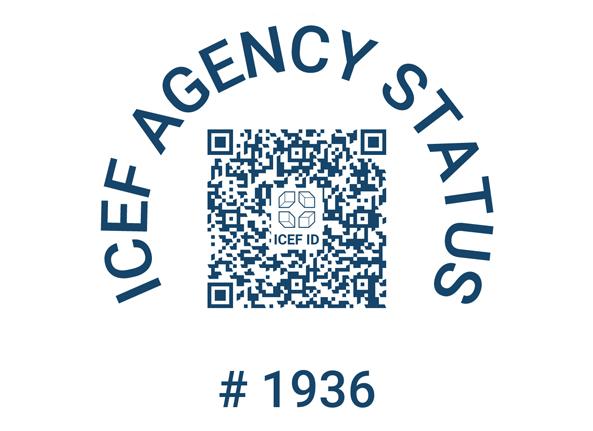
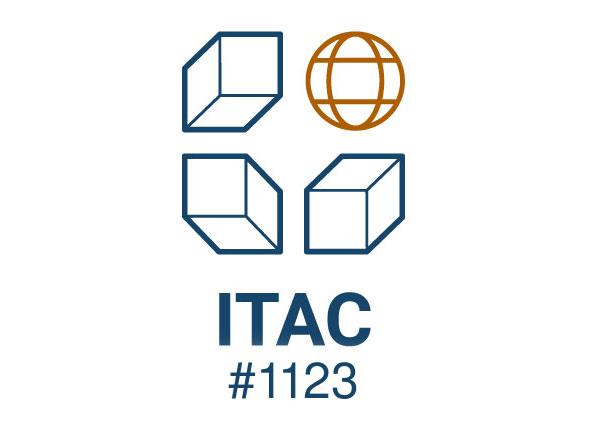

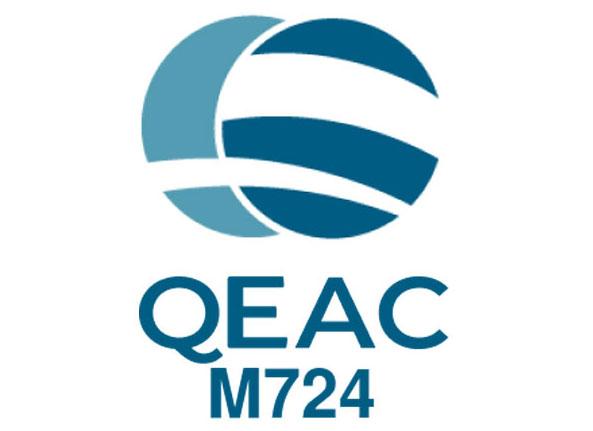


Student's Voice
Voices of students and parents.








